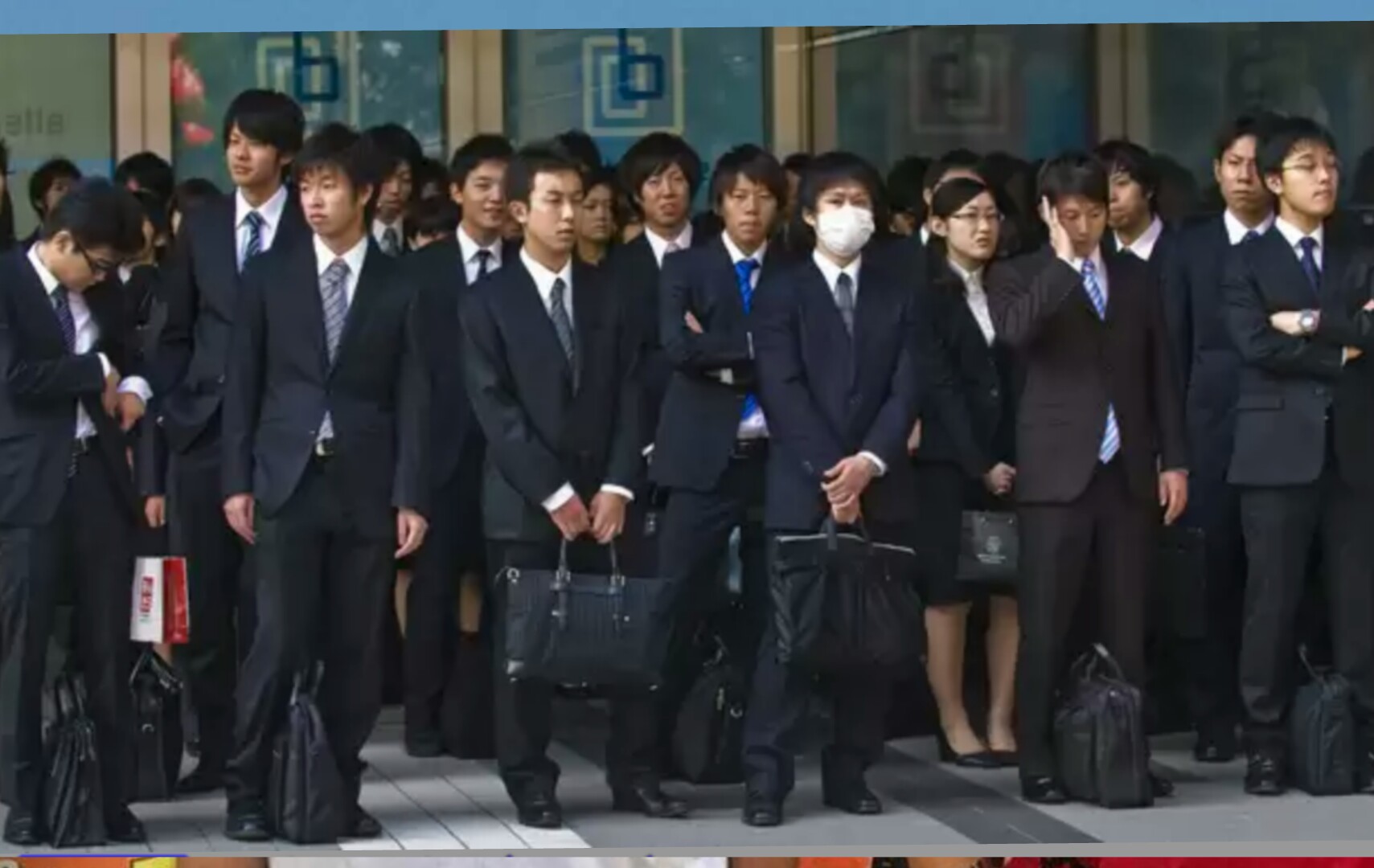Japanese Workers Are Very Upset About Their Upcoming 10-Day Holiday
It’s no secret that Japan is an industrious nation. The place has some of the longest working hours in the world, with nearly one quarter of companies requiring employees to work more than 80 hours of overtime a month, according to CNBC.
Moreover, a 2017 survey by Expedia Japan found workers only used about half of the vacation days owed to them, and 63 percent felt guilty for taking paid leave. That might go some way towards explaining why so many Japanese people are freaking out about the prospect of a 10-day holiday, set to take place later this month. The extended break begins in Japan on April 27th—in honour of the emperor’s abdication from the throne—before coinciding with the traditional “Golden Week” holiday in early May, The Guardian reports. It’s an unprecedented amount of time off for a population that spends so much of their waking life on the job. And workaholics around the country are none too pleased by the news.

A recent survey by local publication Asahi Shumbun found that 45 percent of Japanese people “felt unhappy” about the lengthy vacation, with a mere 35 percent admitting they “felt happy” to take the time off, NDTV reports. Part of that is a result of people being on non-regular contracts, with many worried they stand to lose income over the break. Some parents in the service sector are also worried about finding after-school carers and nurseries that are open for their kids. But other people simply don’t know what to do with their time off.
“To be honest, I don’t know how to spend the time when we are suddenly given 10 days of holidays,” said 31-year-old finance worker Seishu Sato. “If you want to go travelling, it’s going to be crowded everywhere and tour costs have surged… I might end up staying at my parents’ place.”
Japanese workers may have to get more comfortable with the idea of a holiday though, with a new law taking effect this month requiring employees who are due 10 days or more of paid vacation to take at least five days off a year.
Keizo Ishii, head of Expedia Japan, told Nikkei Asian Review that while this is a step towards addressing the problems of the country’s intensive working culture—which has recently resulted in incidents of karoshi, or death through overwork—the upcoming break at the end of April isn’t helping the guilt workers feel for taking leave.
“The revised law may help Japanese workers take more paid holidays, at least on the surface, but many may feel awkward taking more days off since the government decided to create a 10-day Golden Week holiday in late April and early May,” he said. “We have to change the mentality of feeling guilty for taking days off.”
